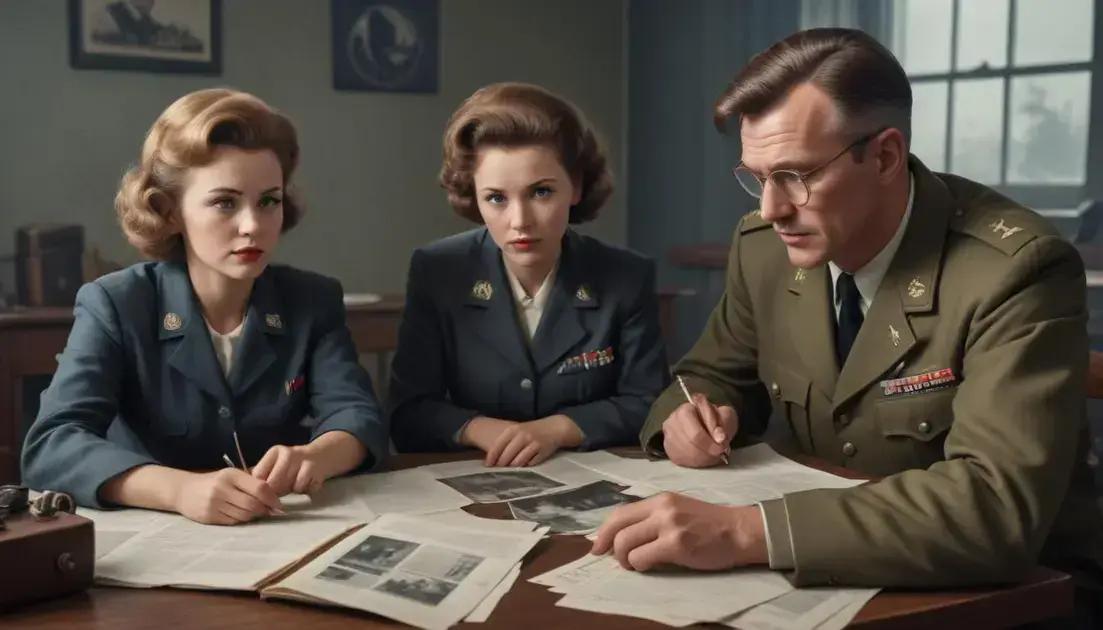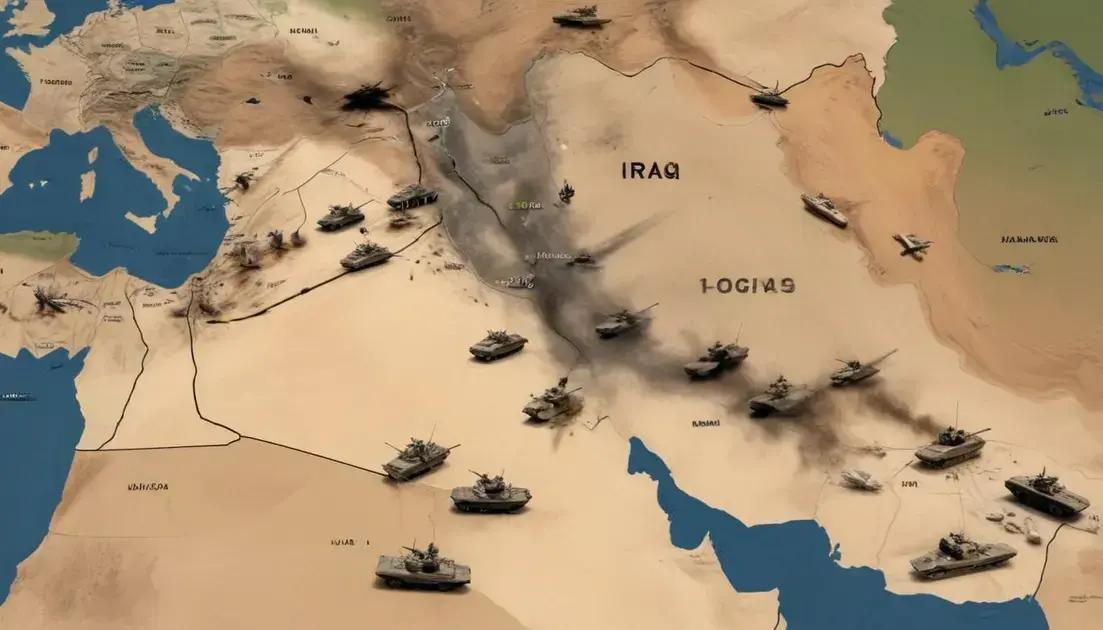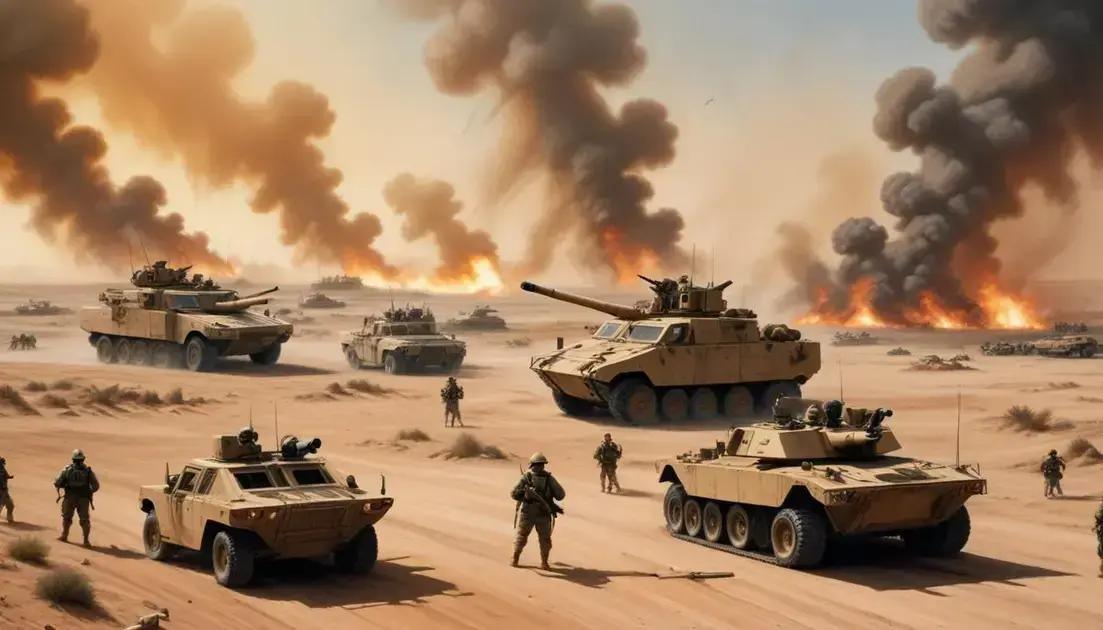
Voices of the Cold War: Living Memories
The Cold War’s impact on historical understanding is profound, highlighting the significance of personal testimonies. These stories teach valuable lessons about resilience, communication, and collaboration, helping us avoid past mistakes. By documenting human experiences, we deepen our empathy and create a more connected future. Learning from the past allows us to make informed choices today, enriching our interpretation of history.
Cold War: Have you ever wondered about the untold stories behind the global tensions of the Cold War? Join us as we delve into the human experiences that shaped an era.
The Importance of Personal Testimonies
The Importance of Personal Testimonies can’t be overstated. These stories give us a peek into the real lives of those who experienced the Cold War. They remind us that behind every conflict, there are people with hopes, fears, and dreams.
Personal testimonies humanize history. They help us connect with events that might seem distant or hard to understand. Hearing someone’s story can make the past feel more immediate and relatable.
Many of these testimonies come from everyday people, not just leaders or soldiers. A mother might have shared her struggle to keep her family safe. An artist may have spoken about using their work to express their feelings during stressful times.
These narratives often reveal emotions that documents can’t convey. They show how the Cold War affected families, friendships, and communities. Stories of loss, love, and resilience can inspire us today.
When we read or listen to these personal stories, we learn valuable lessons about empathy and understanding. They challenge us to consider different perspectives and recognize our shared humanity.
In a world where history can feel abstract, personal testimonies breathe life into the facts. They remind us that every statistic is tied to someone’s lived experience. This makes the past not just something to learn, but something to feel.
Documenting Human Stories
Documenting Human Stories is key to understanding the Cold War. These stories capture real experiences and emotions from a time of great tension. When we document these tales, we help preserve history.
Each story tells us something valuable. They share personal struggles, fears, and triumphs. For example, a soldier might describe a moment of peace amid chaos. A civilian could share how they made difficult choices to survive.
It’s important to collect these stories. They provide insight into how the Cold War shaped lives. By recording oral histories, we ensure voices aren’t forgotten. Many organizations focus on preserving these accounts for future generations.
Sharing these narratives connects people across time. They help us learn and connect with others. Listeners may find common ground in experiences of fear or hope. This makes history feel more alive.
Using various methods, such as interviews and recordings, we can document these human stories. Technology can help reach a wider audience. Online platforms and podcasts allow voices to be heard far and wide.
Documenting human stories not only enriches history but also promotes understanding. It reminds us that every conflict involves real people. These accounts shine a light on resilience and courage in hard times.
Impact on Historical Understanding
Impact on Historical Understanding is significant when we consider personal stories from the Cold War. These narratives deepen our grasp of historical events. They show us how conflict affected real people.
Without these stories, history can feel distant and dry. But when we hear firsthand accounts, we connect. We learn what it was like to live through uncertain times.
Each story adds layers to our understanding. They can challenge myths and clarify misunderstandings. For instance, a soldier’s experience may reveal the complexities of war. A civilian’s story can highlight the struggles of everyday life during turmoil.
Moreover, these accounts help preserve cultural memory. They remind us of shared experiences and diverse perspectives. Listening to different voices opens our minds to new viewpoints.
As we collect and share these stories, they shape our historical narrative. They inspire us to ask questions and seek truth. This exploration can spark curiosity about our past and its heroes.
Ultimately, personal testimonies foster empathy and understanding. They encourage critical thinking about history. By studying these human stories, we gain insights that textbooks often overlook.
Lessons Learned from the Past
Lessons Learned from the Past are crucial when we think about the Cold War. By understanding what happened, we can avoid repeating mistakes. History offers valuable insights into how we manage conflicts today.
Personal stories teach us about resilience. They show how individuals faced challenges and overcame fears. For example, many people found ways to stay hopeful during tough times. These lessons can inspire us in our own struggles.
Moreover, the conflict highlighted the importance of communication. Many misunderstandings arose from lack of dialogue. Today, we’re reminded to listen and engage with different perspectives.
Another lesson involves the impact of fear. Cold War stories reveal how fear can shape decisions. Recognizing this helps us make better choices today. We should strive to lead with understanding rather than fear.
In addition, collaboration often led to positive outcomes. Stories of diverse groups working together remind us that unity can bring strength. These insights encourage cooperation in addressing modern issues like climate change and social justice.
Reflecting on the Cold War helps us develop empathy. Understanding the human experiences behind conflicts makes us more compassionate. As we learn from the past, we can build a brighter future.
Conclusion
In conclusion, the stories from the Cold War teach us important lessons about resilience, communication, and collaboration. By listening to personal testimonies, we gain a deeper understanding of history. These experiences remind us of the strength in unity and the importance of empathy.
Reflecting on past conflicts helps us recognize the impact of fear and misunderstanding. As we learn from these events, we can make better choices in today’s world. Moving forward, we should strive to engage in meaningful conversations and work together on shared challenges.
Ultimately, the insights gained from the Cold War are not just historical—they are relevant today. By remembering the past, we can build a more compassionate and connected future.


